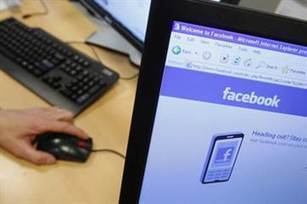A recent study highlights the opportunities which online social networks may provide to analyze the impact of social behavior on health outcomes such as the prevalence of obesity.
For several years researchers have been trying to find the causes of obesity, aside from any genetic predisposition. Our social environment is regarded as one of the decisive factors overall. For example, families living in deprived circumstances are often prone to obesity because, it is argued, cheaper food is often more fatty and sugary –although this supposed causal link still remains controversial. Such studies have their limitations, since there is relatively little reliable information available on people’s physical activities and dietary habits. However, there is today one source, though rather unconventional as regards public health studies, which can provide a wealth of data: Facebook. Recently four researchers from Harvard Medical School, working together with the Center for Disease Control and Prevention Behavioral Risk Factor Surveillance– an ongoing telephone health survey system – and NYC EpiQuery systems, a web-based system designed to provide health data from a variety of sources, set out to examine the relationship between Facebook users’ ‘likes’ and their weight*.
Studying populations through the lens of social networks
This is one of the first attempts to study the health of a population by extracting data from online social networks. Recently, another online study, carried out via social networks among 61 million people, which looked at the influence of messages on voting patterns, has already demonstrated the potential of social networks for this type of study. Such networks provide a new source of usable data and Facebook is one of the most useful tools since users tend to volunteer information on their surroundings, origins, background and personal interests. Moreover, the sheer size of the network in terms of its user base is an argument in itself for using this data source. In the United States, half the population is active on Facebook, as is one person in eight worldwide. The study on obesity analyzed Facebook users’ ‘likes’, broadly categorizing them under "health and fitness" and "outdoor physical activities" as an indication of being physically active, and "television" as a marker for a sedentary lifestyle. The study reveals that in the US as a whole there is one clear link between Facebook users’ ‘likes’ and obesity: in any given area of the country, a greater proportion of people with activity-related Facebook interests and a smaller proportion who like television appears to be correlated with a lower prevalence of obesity.
Gathering data on public health
The major increase in obesity on a global scale suggests that a person’s social environment says a lot about his/her health. Many studies have already examined the relationship between people being overweight and their immediate environment. For example, in places where there is less opportunity for people to walk, we find higher rates of obesity. Beyond the physical environment, this study now shows that people’s social environment may also be linked to obesity. There are many variables – among them common interests, whether active or sedentary – which make it easier to pinpoint populations at risk. Up to now, obtaining data relating to the social environment of these populations has been costly and slow, and the process difficult to carry out across a large population. The availability of online social network data for this type of study therefore seems to have come at the right moment. Further research is now needed to better understand how the online social environment actually relates to health outcomes and how it can be used to identify when action is needed or target specific interventions.
*‘Assessing the Online Social Environment for Surveillance of Obesity Prevalence’ by Rumi Chunara, Lindsay Bouton, John W. Ayers and John S. Brownstein



 Your new post is loading...
Your new post is loading...








